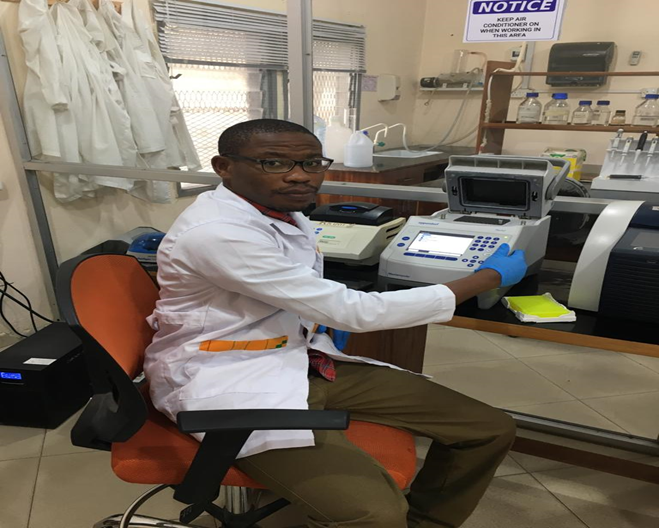Antimicrobial resistance is a serious health issue that is becoming increasingly prevalent in Ghana and the general population is increasingly becoming aware. This can be attributed to the implementation of the National Action Plan on Antimicrobial Resistance, which has led to improved systems for generating, collecting, analyzing, and interpreting data on AMR.
Thanks to funding from the PAR Foundation, a project was launched to evaluate antibiotic usage and resistance among elderly patients in nursing homes in Accra. Prior to this study, there was limited information on antibiotic resistance patterns in nursing homes in Ghana.
The project involved 118 participants between the ages of 55 and 99 from five different nursing homes in Accra. Extended Spectrum Beta Lactamase(ESBL) genes which included bla TEM, bla SHV, bla OXA and CTXM groups were observed in 30% of the samples collected.
“The study found that 30% of the samples collected contained Extended Spectrum Beta Lactamase (ESBL) genes, indicating a high prevalence of resistant genes and a high usage pattern of antibiotics among the elderly in nursing homes.” – Emmanuel Odartei Armah, Water Research Institute – Council for Scientific and Industrial Research (CSIR) -Ghana
In addition to collecting data, the project also educated participants on the dangers of antibiotic resistance in an effort to improve their understanding of the issue. While changes in perception regarding antibiotic use and prescription were not evaluated during the first sampling, participants reported gaining new insight on the concept of AMR.
Through conversations with caretakers, staff, and nursing home managers, educational efforts were made to raise awareness about the dangers associated with antibiotic usage. The aim was to help these individuals working at the nursing homes to better understand the issue of antimicrobial resistance (AMR).
The project’s impact has drawn the attention of government and non-governmental institutions, as well as policymakers and government agencies. “The recommendations of this study and proper engagement of all stakeholders has also led to the establishment of a Medical Microbiology laboratory at the Biomedical and Public Health unit of the water research institute located in Accra, which will focus on the surveillance of AMR and research on medically relevant microorganisms.”, said Emmanuel Odartei
According to Emmanuel, the newly established laboratory will have a dual focus on both surveillance of antimicrobial resistance (AMR) and research on medically relevant microorganisms. This will promote routine surveillance of microorganisms that have a significant impact on public health.
The second phase of the project is set to kick off in July 2023 and will include a continuation of the analysis of samples collected in 2022, isolation of bacteria, microscopic analysis, molecular analysis, qualitative analysis and report writing.
Antibiotic resistance is a serious public health issue, and the Ghanaian government is taking proactive steps to address it. The findings of this project will be critical in informing future policies and interventions aimed at curbing the spread of antimicrobial resistance in Ghana.

